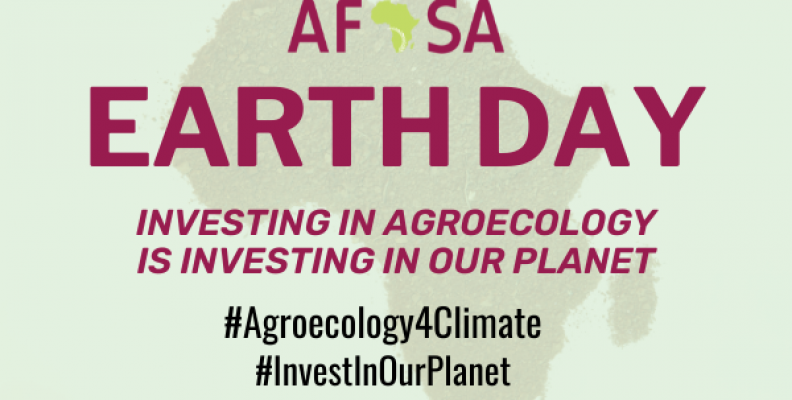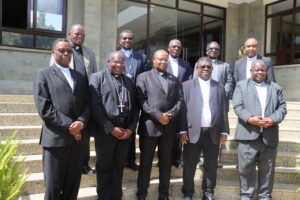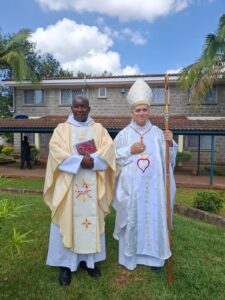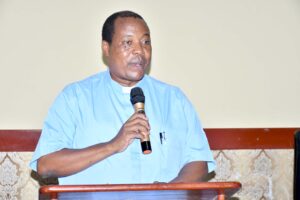SECAM: On International Earth Day, Civil and Faith Organizations Advocate for Agroecology

Sr. Jecinter Antoinette Okoth, FSSA
As the world marks 52nd Anniversary of international Earth day, Faith-Based Organizations (FBOs) and Civil Societies Organizations (CSOs) in Africa are advocating for sustainable farming methods that work with nature and reduces environmental impact.
In a report published on Friday, April 22, 2022 by the Alliance for Food Sovereignty in Africa (AFSA) the officials note that Agroecology plays a critical role when it comes to way forward on saving and nurturing the environment.
According to the AFSA officials, the organization is set to raise awareness through social media platforms to enlighten the society on changes in food systems and better and sustainable ways of managing climate crisis.
“As part of the activities this year, AFSA is undertaking a three-day social media campaign to raise awareness of the need for transformative changes in our food systems through diverse agroecological farming, which supports resilient and sustainable pathways to food security while addressing the climate crisis by rejuvenating biodiversity, restoring degraded land, improving ecosystem services, and increasing soil carbon sequestration,” reads part of the report published on Earth day.
The officials note that the campaign “will join the global community on Twitter, Facebook, and Instagram under the slogan “Investing in Agroecology is investing in Our Planet.”
The report underlines that according to the information received from Inter-governmental Panel on Climate Change (IPCC) as per their findings last year, “tens of millions of people across Africa face the risk of famine, drought, disease, and displacement within decades, predicting a bleak future for the continent least responsible for global warming.
Additionally, the IPCC report reveals that “multiple African countries will face compounding risks from reduced food production across crops, livestock, and fisheries.”
AFSA’s Program Coordinator Ms. Bridget Mugambe is quoted in the report to have said that “Africa requires a fresh perspective and renewed commitment to address the climate and food crises head-on.”
According to Ms. Mugambe, AFSA advocates Agroecology “as the best paradigm for fundamentally transforming Africa’s food systems in order to address the climate, biodiversity, and food security crises.”
In her observation, “It is time for African governments to resist and reject industrial agriculture and recognize agroecology as a sustainable farming system that empowers small-scale farmers for food security and a resilient future.”
The AFSA report underscores that according to the 2022 Earth Day themed Investing in our planet, calling on people to act boldly, innovate broadly, and implement equitably, “Agroecology is the latest science, a set of practices and the bold future of farming in Africa.”
AFSA whose core mission is “to influence policies and to promote African solutions for food sovereignty,” and at the same time “serves as a continental platform for consolidation of issues pertaining to food sovereignty and together marshal a single and louder voice on the issues and tabling clear workable solutions,” are encouraging governments to “recognize agroecology as an environmentally sound, economically viable, and socially just solution to building resilience and thus establish it as Africa’s critical policy priority for the upcoming COP-27.”
Additionally, the General Coordinator of AFSA Dr. Million Belay, has highlighted in the report that, “The age of multiple crises necessitates a serious rethinking of our food systems, as well as the promotion of ways to live in harmony with nature and invest in our planet and that “Scaling up Agroecology can help Africa achieve transformative changes in climate change adaptation, food security, and sustainable and just economies.”
Earth day is an annual event marked to advocate for environmental protection. It was first held in April 22, 1970.


